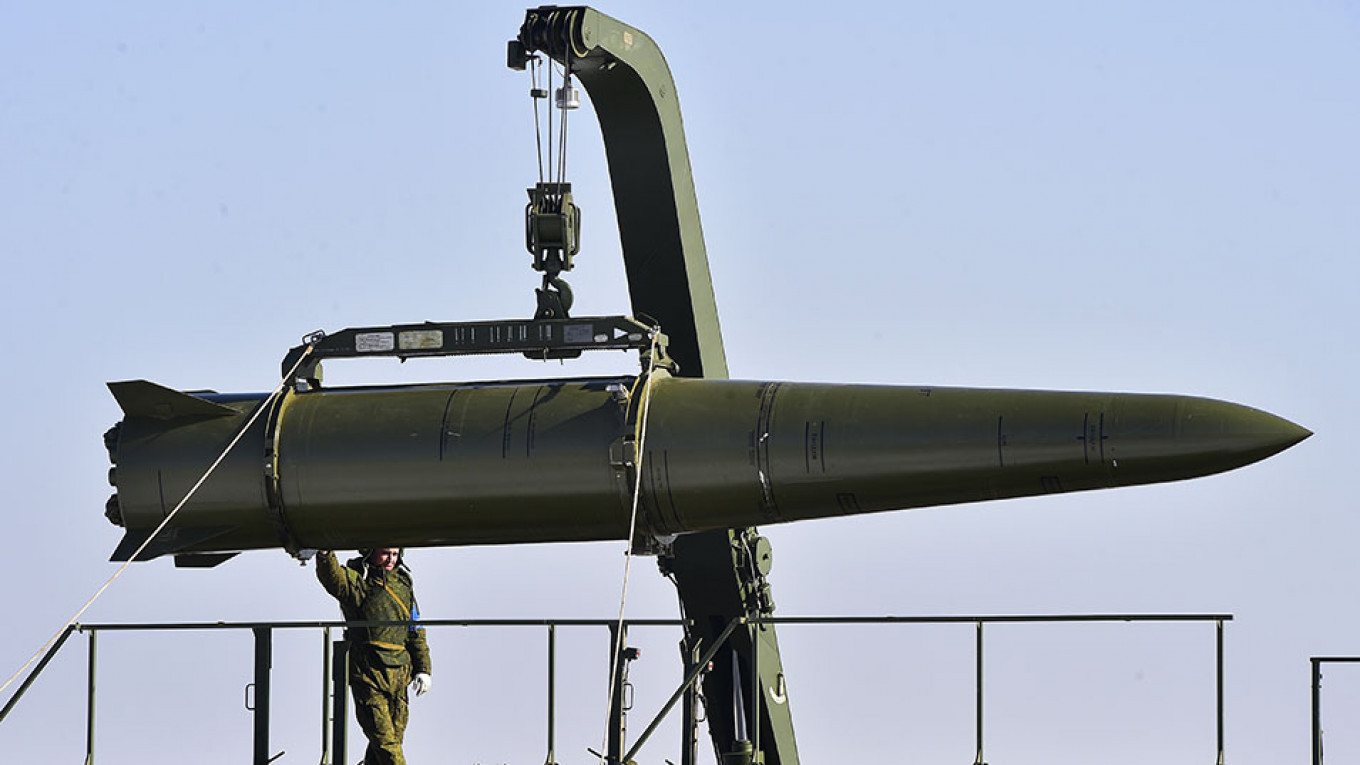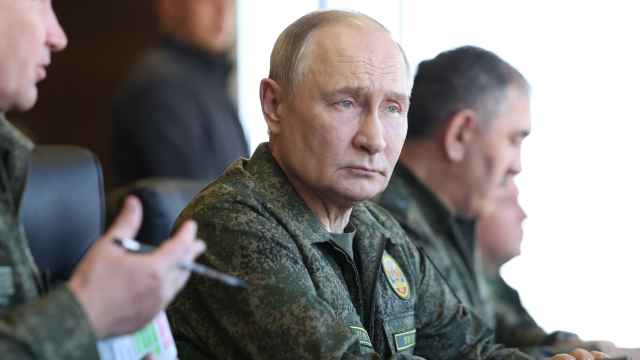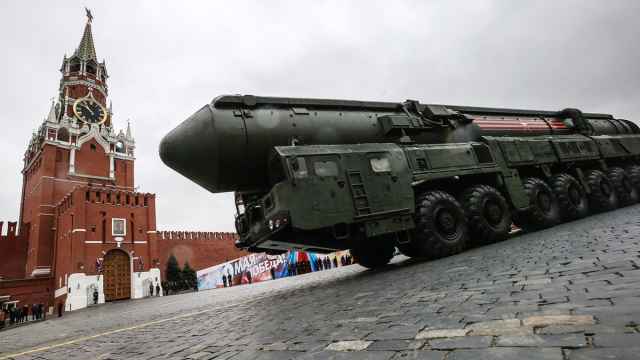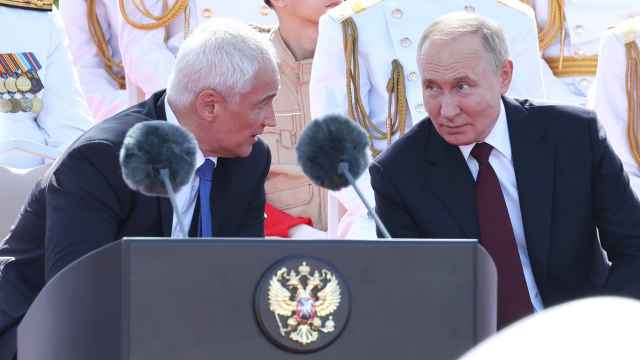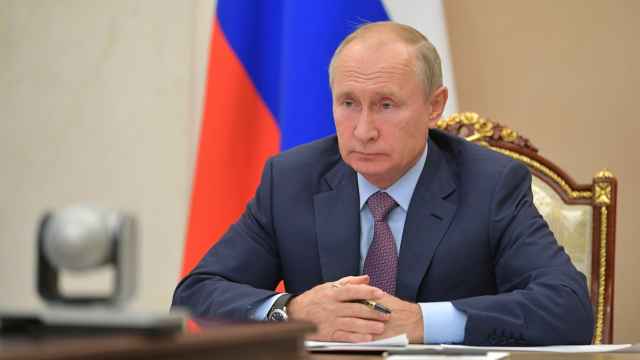Russian President Vladimir Putin on Tuesday submitted a bill to parliament that would extend by five years a key nuclear pact with the United States that was set to expire next week.
The New START treaty, signed in 2010, caps to 1,550 the number of nuclear warheads that can be deployed by Moscow and Washington, who control the world's largest nuclear arsenals.
Putin's draft legislation appeared on the lower house State Duma website Tuesday evening.
"On Jan. 26, 2021, Russia and the United States reached an agreement on the extension of the treaty," read an explanatory note attached to the bill, published on the lower-house State Duma website.
It said that the two sides had "agreed in principle" to extend New START by five years.
The state RIA Novosti news agency cited Leonid Slutsky, foreign affairs chief in the lower house, as saying that the State Duma could consider the bill as early as Wednesday.
The legislation was published after Putin and new U.S. President Joe Biden held their first phone call Tuesday evening.
Following the call, the Kremlin said in a statement that the two leaders had "expressed satisfaction" over the extension talks.
It added that "in the coming days" the two sides will "ensure the further functioning of this important international legal mechanism for the mutual limitation of nuclear missile arsenals."
Working 'urgently'
In its own readout of the call, the White House said Biden and Putin agreed "to have their teams work urgently to complete the extension by Feb. 5," when the nuclear pact is set to expire.
New START is the last remaining arms reduction pact between the former Cold War rivals.
The accord was signed by then-U.S. president Barack Obama and former Russian President Dmitry Medvedev and was seen as a key component of Obama's efforts to "reset" ties with the Kremlin.
Negotiations to extend the treaty had stalled during former U.S. President Donald Trump's tenure, with his administration insisting that China should join the deal, despite Beijing flatly rejecting the idea.
Under Trump, Washington withdrew from two major international agreements — the Iran nuclear deal and the Open Skies treaty — and pulled out of a centerpiece arms control pact with Russia, the Intermediate-Range Nuclear Forces (INF) treaty.
Former Soviet leader Mikhail Gorbachev, who brokered the INF treaty with U.S. president Ronald Reagan in 1987, urged both countries to extend New START and work together to agree further cuts to nuclear stockpiles.
A Message from The Moscow Times:
Dear readers,
We are facing unprecedented challenges. Russia's Prosecutor General's Office has designated The Moscow Times as an "undesirable" organization, criminalizing our work and putting our staff at risk of prosecution. This follows our earlier unjust labeling as a "foreign agent."
These actions are direct attempts to silence independent journalism in Russia. The authorities claim our work "discredits the decisions of the Russian leadership." We see things differently: we strive to provide accurate, unbiased reporting on Russia.
We, the journalists of The Moscow Times, refuse to be silenced. But to continue our work, we need your help.
Your support, no matter how small, makes a world of difference. If you can, please support us monthly starting from just $2. It's quick to set up, and every contribution makes a significant impact.
By supporting The Moscow Times, you're defending open, independent journalism in the face of repression. Thank you for standing with us.
Remind me later.


